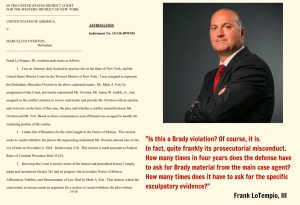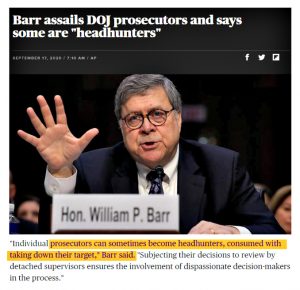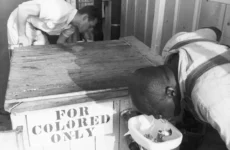After the belated disclosure of clearly exculpatory evidence, Marcellus Overton, the popular barbershop owner in Niagara Falls, will move to vacate his guilty plea, after being charged with “sex trafficking of a minor and transportation of a minor to engage in criminal sexual activity”.
[Read previous article on Overton: https://frankreport.com/2020/09/19/prosecution-coverup-fail-alleged-victim-clears-overton-in-fed-case/]
The Overton case is an unusual sex-trafficking case. Instead of multiple victims, several abusers and a myriad of events, it hinges on two isolated events in 2012 and 2013, involving one 17 year-old-girl.
Overton is accused of driving the underage alleged victim to a motel where she was to meet a man for paid sex, and also making an overnight trip to Georgia with her and two other adult women, two instances in which the government alleges the minor tried to engage in paid sex under the direction of Overton, a charge he has always denied.
Now it has surfaced, in the investigation notes from the Department of Homeland Security Special Agent Karen Wisniewski, who was initially part of the federal investigation, that statements from the prosecution’s main witness, the then-underage girl, cleared Overton of any wrongdoing.
She apparently told Agent Wisniewski that Overton had nothing to do with her decision to engage in an act of paid sex in order to earn a little money for herself. She was evidently a sex worker before and after the two isolated events.
The prosecution did not tell Overton’s defense this important information, declaring instead that the victim was going to testify otherwise – y prompting Overton to believe the deck was stacked against him.
He knew the alleged victim did not identify him as her trafficker and that the prosecution was covering this up. Still, knowing the case was rigged against him, and with an inexperienced assigned counsel, he decided that the only way he might avoid life in prison was to take a plea deal that could see him spending up to 9 years in prison.

In a fiery court filing, Overton’s new assigned counsel, Frank LoTempio, III, reminds the court that “The Defendant stated in his declaration that he would not have taken the plea had he been in possession of the evidence he knew existed.”
“The Defendant went to the eve of trial before succumbing to the pressure of taking a plea”.
“Is this a Brady violation?” LoTempio questions in his filing, citing the judicial precedent that governs the release of exculpatory evidence by prosecutors. “Of course, it is. In fact, quite frankly it’s prosecutorial misconduct”.
+++
All evidence shows that Marcellus Overton always protested his innocence, and wanted to go to trial even without the Brady evidence.
It will be in the hands of Judge William M. Skretny, in the United States District Court for the Western District of New York, to decide whether to permit Overton to vacate his guilty plea.
Under Federal Rule of Criminal Procedure Rule 32, “Courts will permit a Defendant to withdraw a guilty plea prior to sentencing, only if the Defendant shows a fair and just reason.”
Frank LoTempio, III., attorney for the Defendant: “A guilty plea is not knowingly and voluntarily made when the Defendant has been misinformed as to crucial aspects of their case”.
The precedent of ‘Brady v. United States’ governs this question, and it affirms that “A guilty plea must not only be voluntary, but must be a knowing intelligent act done with sufficient awareness of the relevant circumstances and likely consequences”.
It has been ruled by multiple courts in the US that a plea made in the absence of withheld exculpatory material is not “voluntary” or “intelligent”.
+++

Marcellus Overton has always maintained his innocence up to the eve of trial, when – he believes – he was tricked into pleading guilty.

“The Government’s main witness/victim makes a statement to the case agent absolving the Defendant of wrongdoing,” Frank LoTempio, III writes in his court filing.
“The information in those notes directly controverts the Government’s theory of the prosecution and the charges against Mr. Overton. This is a material fact that if elicited and proven at trial may result in an acquittal.”
+++
There are some who will argue that if Overton was innocent he would not have taken a plea deal. This is a naïve point of view.
As Jed S. Rakoff, a United States District Judge for the Southern District of New York, wrote, “a defendant’s decision to plead guilty to a crime he did not commit may represent a ‘rational,’ if cynical, cost benefit analysis of his situation.”
Overton was facing up to life in prison and the prosecution hid evidence of his innocence.
As Judge Rakoff continued, “a defendant is told, often by his own lawyer, that there is a strong case against him, that his likelihood of acquittal is low, and that he faces a mandatory minimum of five or ten years in prison if convicted [a life sentence in Overton’s case] …. but that… he can get a plea bargain to a lesser offense that will reduce his prison time by many years.
“How prevalent is the phenomenon of innocent people pleading guilty? The few criminologists who have thus far investigated the phenomenon estimate that the overall rate for convicted felons as a whole is [up to] 8 percent.”
The Innocence Project has demonstrated that 10 percent of DNA exonerated prisoners took plea deals and confessed to crimes they did not commit to lessen the risk of being in prison for decades or for life.
Of the 2.2 million Americans in prison, an estimated 2 million are there because of plea bargains. If the 10 percent estimate is accurate, then some 200,000 persons are in prison for crimes to which they pleaded guilty to but did not in fact commit.
Overton was slated, it seems, to be another statistic, another likely innocent man who took a plea deal because he had no money to fight and was misled about what the alleged victim really told law enforcement.

The troubling behavior displayed by prosecutors in Overton’s case is, unfortunately, not an isolated incident. Recently, U.S. District Judge Alison Nathan filed a scathing opinion after she identified, in another, unrelated case, a stream of mistakes and prosecutorial misconduct, showing that Overton’s case may not be unique.
In an unusual rebuke, the Judge also directed the U.S. Attorney’s Office for the Southern District of New York to ensure that all of its prosecutors read her decision.
The judge will continue to investigate whether prosecutors and FBI agents intentionally misled her about the prosecution of Ali Sadr Hashemi Nejad, who was charged with violating American sanctions against Iran. The judge went to the extent of referring members of the government team for a separate probe by the Justice Department.
The prosecutors themselves might be prosecuted.
Judge Alison Nathan: “With each document wrongfully withheld, an innocent person faces the chance of wrongful conviction. And with each unforced government error, the likelihood grows that a reviewing court will be forced to reverse a conviction or even dismiss an indictment, resulting in wasted resources, delayed justice, and individuals guilty of crimes potentially going unpunished.”
One key email message withheld by the prosecutors in the Nejad case described how a member of the team found that an important document hadn’t been turned over to the defense, and suggested: “I’m wondering if we should wait until tomorrow and bury it in some other documents.”
“Several of these issues, both new and old, suggest patterns that may extend beyond this case and require systemic solutions,” judge Nathan wrote.
Authorities had previously violated their disclosure obligations in an earlier case in front her court — and had promised her it wouldn’t happen again.
In other words, prosecutors regularly lie – withholding evidence of innocence – in order to win the case – without regard to justice.
“The manifold problems that have arisen throughout this prosecution — that may well have gone undetected in countless others — cry out for a coordinated, systemic response from the highest levels of leadership within the United States Attorney’s Office for the Southern District of New York,” she wrote.
+++

If that was not enough to highlight a troublesome pattern in US prosecutions, even Attorney General William Barr criticized his own Justice Department, saying some prosecutors are behaving as “headhunters” in their pursuit of targets and are using the weight of the criminal justice system to launch what he said were “ill-conceived” probes.
“Individual prosecutors can sometimes become headhunters, consumed with taking down their target,” Barr said.
+++

Marcellus Overton became a target of the feds.
What does this all mean for Marcellus Overton in his years-long fight for his life and freedom?
By now, we have evidence that shows that the FBI investigation and the subsequent overreaching WDNY prosecution were built over a shaky foundation, to say the least.
The Government’s main witness is unreliable, and has reportedly cleared Overton of any wrongdoing.
MORE: this victim/witness happens to be the only underage girl [she was 17 at the time] involved in the case – she, actually, is the government’s whole “sex trafficking” case. Without her, they apparently have nothing.
Consider that this is a sex trafficking case, with only two dates and apparently no actual sex activity. The prosecution is not known to have a single ‘John’ or any evidence that the victim actually engaged in sex with anyone. When she was arrested for attempted prostitution, she apparently admitted that she did sex work on her own and told that to Special Agent Wisniewski who made notes of the interview.
The government “knew the [exculpatory] notes existed before the trial and, more importantly, before the plea, ” writes LoTempio. “They attempted to hide that by taking [Special Agent] Wisniewski off the witness list.”
“That is the definition of prosecutorial misconduct. This is the definition of a Brady Violation. This is the exact reason the Courts allow for a withdrawal of a plea in this scenario: so the government is not rewarded for hiding information or not providing all the information to the Defense”.
Overton should be allowed to withdraw his plea, should have his constitutional rights respected, and receive a fair and just trial. Nothing short of should be acceptable for any of us.
Of course the government opposes it. This is not about innocence or guilt. It is about conviction stats, about not losing face and perhaps even protecting prosecutors from prosecution themselves.
Overton is innocent until proven guilty, and has to be treated as such. He is not asking for the case to be dismissed – though that well might happen and likely ought to happen, he is merely seeking to not be held to a plea deal dishonestly procured.
The treatment he received from the WDNY prosecutors, a combination of the threat of draconian, unjust sentences and the withholding of exculpatory evidence, appears in itself to be illegal, if not outright criminal.




















